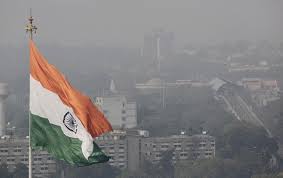
Union Minister of Environment, Forest and Climate Change, Dr Harsh Vardhan just launched the National Clean Air Programme (NCAP) that aims to reduce toxic particulate matter by 2024, taking 2017 as the base year. In addition to the release by his office, he also shared a twitter clip talking about NCAP and the research that went behind the plan.
#NationalCleanAirProgramme लांच के मौके पर मैंने कहा कि #वायु_प्रदूषण की समस्या को लेकर उनका मंत्रालय पिछले दो वर्षों से लगातार Pro- Active तरीके से काम कर रहा है। #NCAP @moefcc @PMOIndia #cleanair pic.twitter.com/MkvKwpZNd8
— Dr. Harsh Vardhan (@drharshvardhan) January 10, 2019
What is NCAP?
The National Clean Air Programme is a mid-term, five-year action plan that includes collaborative, multi-scale and cross-sectoral coordination between relevant Central ministries, state governments and local bodies.
According to the plan, the programme will be further extended after looking at mid-term results.
Key features and highlights of the programme:
1. The overall objective of the programme includes comprehensive mitigation actions for prevention, control and abatement of air pollution besides augmenting the air quality monitoring network across the country and strengthening the awareness and capacity building activities
2. The Environment Ministry has announced a budget of Rs 300 crore for two years to tackle air pollution across 102 cities, which have been identified by the Central Pollution Control Board (CPCB) for not meeting the pollution standards set by the Ministry of Environment, Forests and Climate Change.
3. Also, city-specific action plans are being formulated for 102 non-attainment cities identified for implementing mitigation actions under NCAP.
4. The Smart Cities programme will be used to launch the NCAP in the 43 smart cities falling in the list of the 102 non-attainment cities.
5. The programme will be institutionalized by respective ministries and will be organized through inter-sectoral groups, which include, Ministry of Road Transport and Highway, Ministry of Petroleum and Natural Gas, Ministry of New and Renewable Energy, Ministry of Heavy Industry, Ministry of Housing and Urban Affairs, Ministry of Agriculture, Ministry of Health, NITI Aayog, CPCB, experts from the industry, academia, and civil society.
6. Other features of NCAP include the increasing number of monitoring stations in the country including rural monitoring stations, technology support, emphasis on awareness and capacity building initiatives, setting up of certification agencies for monitoring equipment, source apportionment studies, emphasis on enforcement, and specific sectoral interventions.
7. Sectoral working groups, national level Project Monitoring Unit, Project Implementation Unit, state-level project monitoring unit, city level review committee under the Municipal Commissioner and DM level Committee in the Districts will also be constituted under NCAP for effective implementation and success of the programme.
“The NCAP is envisaged to be dynamic and will continue to evolve based on the additional scientific and technical information as they emerge,” the Environment minister said.
The release also mentioned cities have already prepared action plans in consultation with the CPCB.
“Institutional framework at Centre and state-level comprising the apex committee at the Ministry of Environment Forest and Climate Change in the Centre and at Chief Secretary Level in states are to be constituted,” it said.